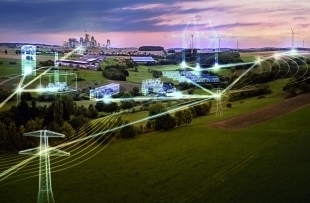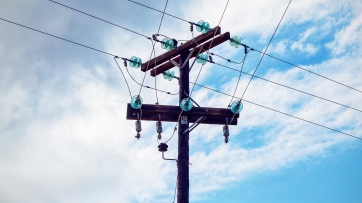Home PSS®SINCAL Introduction
Introduction
PSS®SINCAL – simulation software for analysis and planning of all network types
Independently or simultaneously analyze the impacts of low, medium, and high-voltage networks
 PSS®SINCAL is used over 90 countries by transmission and distribution planning engineers, protection engineers, consultants, power plant and industrial network operators, operations planning engineers, IT professionals, researchers, and more..
PSS®SINCAL is used over 90 countries by transmission and distribution planning engineers, protection engineers, consultants, power plant and industrial network operators, operations planning engineers, IT professionals, researchers, and more..
Through its modular design, PSS®SINCAL is highly flexible and customizable. It offers a wide variety of analysis functions for the planning, design and operation of power systems, allowing you to simulate and study: power quality, frequency stability, distributed generation interconnection, protection coordination, restoration of supply, economic driven design decisions, and more.
Find your application
Generation |
|
|
PSS®SINCAL provides the core analysis and automation functions that are needed for the most accurate generation planning outcomes:
|
|
Distribution network planning and analysis |
|
|
PSS®SINCAL provides distribution engineers with the simulation tools they need for the planning, design, and operation of power distribution networks. It can be used in balanced, unbalanced, radial and meshed networks – including single-phase, multi-phase and rail networks. Some of the most typically used PSS®SINCAL functions for distribution include: load flow, short circuit analysis, dynamic analysis, optimal capacitor placement, Volt/VAR optimization, harmonics analysis, ripple control analysis, protection coordination, and power quality assessments. |
|
Transmission |
|
|
PSS®SINCAL supports a full spectrum of analysis across power transmission planning and operations workflows, including: load flow, advanced contingency analysis, steady state voltage stability, short circuit analysis, dynamics and transient stability simulation, harmonics, protection and probabilistic reliability analysis. |
|
Industrial networks |
|
|
PSS®SINCAL provides industrial facility operators and designers with the tools they need for the planning, design, and operation of industrial power networks – such as those for refineries, chemical plants, oil platforms, mining, automobile, and other manufacturing facilities. Typical capabilities and use cases include: short circuit calculation, power flow analysis, cable and transformer design, protection coordination, arc-flash hazard, harmonics and filter sizing, motor start, and dynamic stability simulation. |
|
Protection |
|
|
System operators, planners and protection engineers face an ever-increasing landscape of challenges around power system protection due to the integration of variable energy resources. With PSS®SINCAL, protection engineers can master these challenges by:
In addition, the built in protection security assessment module allows for an automated system-wide protection study, as well as the identification and mitigation of critical fault scenarios. |
|
Renewable and distributed energy resources (DER) |
|
|
Due to the proliferating deployment of DER on transmission and distribution networks, planners need to perform an increasing number of grid interconnection studies. Utilities and DER investors need tools that can help them automatically assess the viability of various interconnection proposals. The maximal hosting capacity (ICA) module within PSS®SINCAL automates different calculation functions (such as load flow, short circuit analysis, protection checks with network adoptions, voltage fluctuations due to DER coming online and offline, etc.). Additional PSS®SINCAL features for DER integration include:
|
|
Railway traction systems |
|
|
PSS®SINCAL helps engineers design and analyze power networks for rail systems. It fully supports the unique requirements of rail systems. Typical evaluations include:
|
|
Model management |
|
|
PSS®SINCAL offers model management solutions that reduce modeling efforts and keep multiple network models up to date from within a single application. Its master database function makes it possible for multiple users to work on a network simultaneously. Special synchronization functions – including conflict management, incremental model update, and network model merge – ensure data consistency. PSS®SINCAL can also automatically create cases on-the-fly and easily integrate network models from other applications across the utility IT landscape – including SCADA. |
|
Pipe networks |
|
|
PSS®SINCAL supports the planning of gas, water, and district heating and cooling networks. Utilities that oversee these different network types can optimize their costs and IT overhead by utilizing a single tool instead of multiple applications. PSS®SINCAL also enables companies to perform linked simulations between electrical and pipe networks to optimize the efficiency from the renewables, and use the storage capacity of the pipe networks. Typical analysis modules for hybrid networks include:
|
|
 Español
Español









